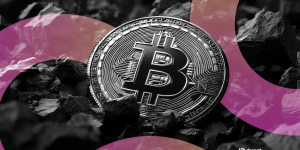Generative AI a Top Emerging Risk for Organizations: Gartner Survey
2 years ago CryptoExpert
In a recent survey of risk executives at 249 organizations conducted by American tech research and consulting firm Gartner, generative AI models like OpenAI’s ChatGPT were named the second greatest emerging risk to enterprise.
According to a Tuesday blog post on the survey by Gartner, experts at the consultancy identified three pressing points that need to be addressed to mitigate risk from large language models (LLMs) like ChatGPT.
Two of the concerns—intellectual property rights and data privacy—are compromised by the current ambiguity around how ChatGPT uses its dataset to generate its outputs.
If, for instance, a company’s intellectual property or sensitive data are inputted as prompts into ChatGPT while chat history is not disabled, they could be outputted as unsourced responses to users and organizations outside the enterprise.
Cybersecurity is the third area of concern. Hackers have recently been able to trick ChatGPT into generating malware and ransomware code, leading to what Garnet calls the “industrialization of advanced phishing attacks.”
In an earlier blog post, Gartner also flagged up generative AI’s sometimes fabricated or inaccurate answers, aka “hallucinations”, its potential undermining of consumer trust (for example, if consumers don’t know they’re chatting with a machine learner instead of a live consumer support agent), and its output biases—one Asian-American student’s LinkedIn profile pic was turned white when she used generative AI to edit it.
Decrypt reached out to Gartner to ask whether organizations are taking timely and practical action to respond to the perceived risk, but did not receive an immediate response.
The road to legislation
To advocates, AI is a tool that will lighten our workloads, improve our designs and potentially usher in a new era in health, learning, work, recreation, creativity and just about every other human endeavor.
However, a growing number of tech experts and luminaries are increasingly vocal about the need to globally regulate the development of advanced machine learning systems to prepare for the advent of human-level artificial cognition, aka Artificial General Intelligence (AGI).
In April, ChatGPT developer Logan Kilpatrick assured his followers on Twitter that work has not commenced on GPT-5 and will not “for some time.”
The announcement came soon after a petition calling for a halt on development of systems more powerful than GPT4 attracted well over a thousand signatures by prominent technologists and researchers, including Tesla CEO Elon Musk and Apple co-founder Steve Wozniak.
The following month, executives from Microsoft, Google, and ChatGPT progenitor OpenAI, sounded a stark warning to governments about the failure to adequately prepare for advanced systems.
In June, the European Parliament—the legislative body overseeing the European Union—voted overwhelmingly in favor of passing a draft law of the Artificial Intelligence Act, a comprehensive bit of legislation that aims to set the global standard. It categorizes AI risks into “unacceptable”, “high” or “limited”.
Meanwhile, Chat GPT’s creator OpenAI has been lobbying European lawmakers to not classify its systems as “high risk” as it would subject them to stringent legal requirements and, OpenAI argues, would mean that should high risks uses suddenly emerge, the company would have a significantly delayed response time due to added bureaucratic layers to cross.












